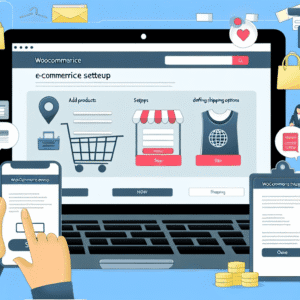In 2025, the digital landscape has evolved dramatically, and so has the threat landscape for Small and Medium Enterprises (SMEs) in Nigeria. With businesses relying more than ever on technology, understanding and implementing effective data security strategies is crucial. Whether you run a fashion boutique in Lagos, a tech startup in Abuja, or a farming cooperative in Jos, safeguarding your data is vital—not just for compliance but for building trust with your customers and ensuring your business’s sustainability.
Why Data Security Matters
For SMEs, data security is not just a luxury—it’s a necessity. Consider this: data breaches can lead to hefty fines, loss of customer trust, and irreparable damage to your brand. In Nigeria, where the digital economy is booming, the stakes have never been higher. By prioritizing security, SMEs can differentiate themselves in a competitive market, create loyal customer bases, and ultimately boost their bottom line.
Understanding the Key Threats
Before diving into strategies, let’s briefly look at the common threats facing Nigerian SMEs in 2025:
Phishing Scams: Cybercriminals are getting more cunning. Emails or messages that look genuine can lead to severe data breaches.
Ransomware: As lucrative as they are malicious, ransomware attacks can freeze your operations while demands for hefty ransoms loom over you.
Insider Threats: Not all threats come from outside. Disgruntled employees or even careless ones can inadvertently expose sensitive data.
Outdated Software: In a tech world where updates frequently roll out, outdated software can serve as an easy entry point for attackers.
Essential Strategies for Data Security
Now that we know what we’re up against, let’s explore some practical and essential strategies for data security.
1. Employee Training
Your employees are your first line of defense. Invest in regular training sessions to raise awareness about data security. Use real-life examples and simple language to explain complex concepts. This could mean teaching staff how to identify phishing attempts or the importance of using unique passwords.
Tip: Incorporate role-playing exercises to make the training more engaging.
2. Implement Strong Password Policies
Passwords are the keys to your kingdom, so treat them as such. Encourage employees to create complex passwords and change them regularly. Implementing two-factor authentication (2FA) can significantly enhance security.
Tip: Use password managers to help staff manage their login details without compromising security.
3. Regular Software Updates
Keeping your systems and software updated is a non-negotiable strategy. Most software updates address vulnerabilities that could be exploited by attackers. Schedule regular updates and audits for all systems, including operating systems, security software, and third-party applications.
Tip: Set reminders in your calendar for major software updates every month.
4. Data Backup and Recovery Plans
Always be prepared for the worst. Regularly back up your data on secure, off-site servers or cloud storage. Test your data recovery plans to ensure that they will work in a crisis. If that ransomware attack strikes, having a backup could mean the difference between business continuity and total loss.
Tip: Automate your backup processes to eliminate human error.
5. Network Security Zoning
Segment your network to limit access to sensitive data. Ensure that different departments have only the access necessary for their functions. If cybercriminals gain access to one part of your network, they’ll find it much harder to move laterally to access other sensitive areas.
Tip: Implement Virtual Local Area Networks (VLANs) to help with segmentation.
6. Utilize Managed Services
For many SMEs, managing data security internally can be overwhelming. Consider partnering with managed service providers (MSPs) like Nikenga Web Services, which offer specialized expertise in cybersecurity.
7. Regular Security Audits
Schedule regular security assessments to evaluate your current defenses against emerging threats. This helps identify vulnerabilities in your systems and ensures you’re proactive rather than reactive in your approach to data security.
Tip: Hire an outside firm for an objective view.
The Role of Compliance
Don’t forget about compliance. Nigeria has made strides in introducing data protection laws, like the Nigeria Data Protection Regulation (NDPR). Familiarize yourself with these regulations to avoid penalties. Compliance not only protects your business but also builds trust with customers who increasingly value their privacy.
Building a Culture of Security
Ultimately, data security must be embedded in your company culture. Make it a core part of your mission and values. Discussing security openly and regularly will ensure that every employee—from the intern to the CEO—understands that it’s everyone’s responsibility.
FAQs
Q: What is the most critical data security strategy for SMEs?
A: While all strategies are essential, employee training is often the most critical. Human error is a leading cause of data breaches, so educating your staff can significantly reduce risk.
Q: How often should we conduct security audits?
A: At least once a year, but more frequently if you’re experiencing high traffic or if significant changes are made to your systems.
Q: What is managed hosting?
A: Managed hosting is a service where a provider looks after the server infrastructure, freeing you from the technical complexities of server management, including security measures.
Call to Action
As we navigate the complexities of data security in 2025, remember that your business’s safety is in your hands. If you’re looking for expert assistance, Nikenga Web Services offers comprehensive managed hosting, marketing, and development solutions tailored for SMEs. Don’t leave your data vulnerable; contact us today to secure your business’s future!







